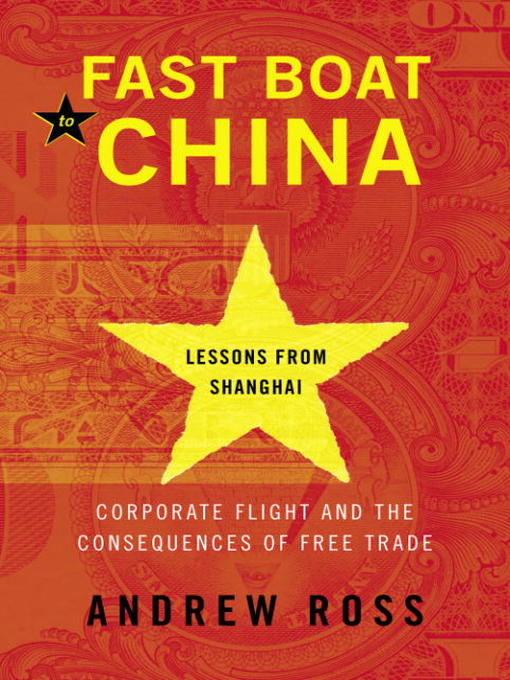
Fast Boat to China
Corporate Flight and the Consequences of Free Trade; Lessons from Shanghai
کتاب های مرتبط
- اطلاعات
- نقد و بررسی
- دیدگاه کاربران
نقد و بررسی

Starred review from February 6, 2006
A cultural critic and frequent commentator on labor issues (No-Collar
), NYU professor Ross positions himself in stark opposition to Thomas Friedman's enthusiastic embrace of free trade's extremes, particularly when it comes to American corporations outsourcing jobs to foreign nations. He notes, for example, that there is no evidence to support the assurances of free trade advocates that displaced workers will eventually reap economic benefits from losing their jobs to cheaper markets. China has become one of the key suppliers of cheap labor, leading Ross to wonder what workers there think of their role in the global economic struggle. Wandering around office parks and expatriate social gatherings in Shanghai, a recent magnet for foreign investment, he lays out a compelling ground-level perspective and discovers that workers in China suffer in ways similar to their American counterparts. Management, he writes, follows the same techniques worldwide, playing on employee insecurity to keep wages down. Ross also outlines the history of China's efforts to attract foreign investment, especially in competition with India, and to bring economic development to its remote western provinces. His firsthand reporting is so engaging that even more of it would be welcome, but the economic analysis offers a strong counterpoint to advocates of outsourcing.

Starred review from March 1, 2006
The prolific Ross (director, American studies, NYU; "No-Collar: The Humane Workplace and Its Hidden Costs" here writes ostensibly about U.S.-China trade relations, but, more important, he takes a look at the -offshoring - that has resulted in hundreds of thousands of American jobs being lost to countries overseas, many to China. Is China to blame? Not according to Ross, who shows how the enterprising Chinese have become convenient scapegoats while American corporations play -global labor arbitrage, - looking for the cheapest labor. Ross argues further that China -s 2001 entry into the World Trade Organization not only legitimized its trading status but also lowered its own trade tariffs, thus encouraging more imports from other countries. China -s recent willingness to acquire U.S. companies shows its determination to be a real player in the global mergers and acquisition arena. In the final analysis, Ross advises us to rethink our trading relationship with China in a positive light, arguing that we clearly have much to gain and everything to lose depending on how we confront this economic superpower. Chock-full of valuable insights and telling asides, many based on his extensive interviews in China, this is essential reading for anyone concerned with globalization issues. Highly recommended for academic libraries and all international economic collections." -Richard Drezen, Washington Post/NYC Bureau"
Copyright 2006 Library Journal, LLC Used with permission.

























دیدگاه کاربران